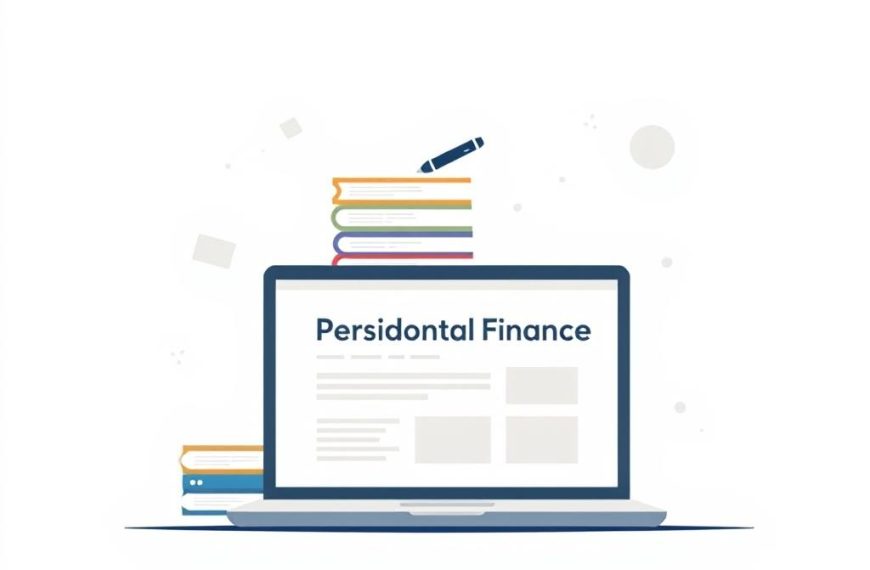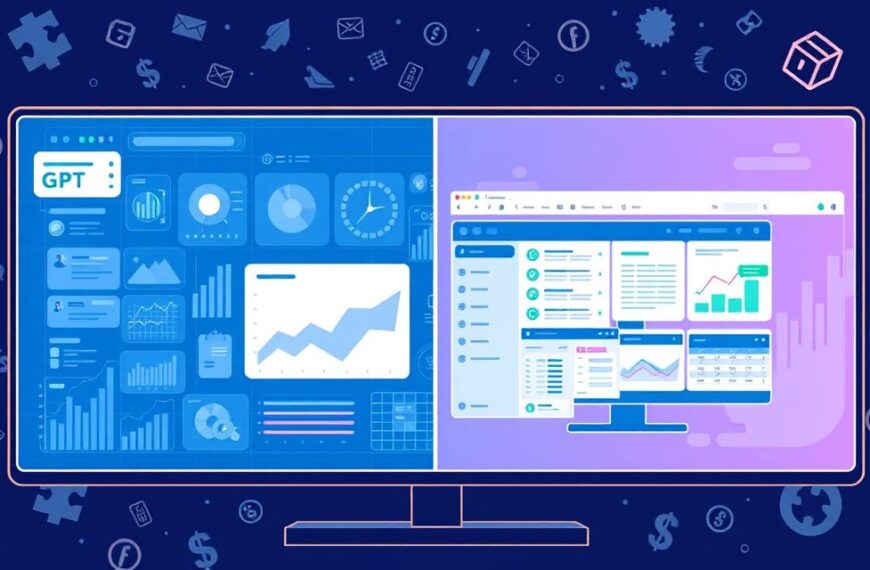Economic downturns can cause major money problems for people and families. Building recession-proof finances is vital for handling economic uncertainty. A recession occurs when the GDP drops for two quarters in a row.
The COVID-19 pandemic caused a sharp economic shift in the United States. Unemployment hit 13% in mid-2020, the highest since the Great Depression. This change showed why planning for downturns is crucial.
Preparing for economic challenges needs a smart approach. Strong financial strategies can protect your income, savings, and long-term goals. Experts suggest creating a solid safety net to weather market changes.
Successful recession-proofing requires proactive planning. This means tracking economic signs, building emergency savings, and managing debt well. It also involves keeping your finances flexible.
The U.S. has faced 13 recessions since World War II. Each lasted about 10 months on average. It’s crucial to have a thorough financial plan ready.
Creating a Recession-Proof Budget Assessment
Strategic budget planning safeguards your finances during uncertain economic times. A thorough financial assessment helps you understand your economic landscape. It prepares you for potential downturns.
A robust budget starts with examining your current financial position. Experts suggest prioritising expenses methodically. This approach distinguishes between essential and discretionary spending.
Understanding Your Current Financial Position
A thorough financial assessment involves multiple critical steps:
- Calculate total monthly income from all sources
- List all existing financial obligations
- Review spending patterns for the past three months
- Identify potential areas of financial vulnerability
Identifying Essential vs. Discretionary Expenses
Effective budget planning requires separating necessary from optional expenditures. The four walls of personal finance offer a framework for prioritising spending.
| Essential Expenses | Discretionary Expenses |
|---|---|
| Housing | Entertainment subscriptions |
| Utilities | Dining out |
| Groceries | Clothing purchases |
| Transportation | Vacation spending |
Setting Realistic Financial Goals
Economic preparedness requires flexible yet structured financial objectives. Creating a recession-resistant budget involves setting achievable milestones. These goals should adapt to changing economic conditions.
- Build an emergency fund covering 3-6 months of expenses
- Reduce unnecessary spending by 15-20%
- Create multiple income streams
- Regularly review and adjust financial strategy
How to Prepare for a Recession Personal Finance
Economic uncertainty calls for smart financial planning. Protecting your finances and building resilience are key to weathering potential downturns. A comprehensive approach is essential for safeguarding your financial health.
Proactive financial management is crucial in turbulent times. Understanding key strategies can help maintain your financial stability. These approaches will guide you through challenging economic periods.
Building a Robust Emergency Fund
Emergency savings are vital during uncertain times. Financial experts suggest saving wisely:
- Minimum three months of household expenses for standard situations
- Six months of expenses for sole earners or unstable industries
- Potentially up to one year for retirees
“Financial preparedness is your best defence against economic volatility.” – Financial Planning Expert
Effective Debt Reduction Strategies
Reducing debt is crucial during recessions. Consider these key approaches:
- Prioritise high-interest debt payments
- Consider debt consolidation options
- Negotiate with creditors for potential relief programmes
Intelligent Investment Portfolio Adjustments
Managing your investment portfolio wisely is essential during recessions. Keep these critical points in mind:
- Diversifying investment assets
- Focusing on defensive stock options
- Maintaining long-term investment perspectives
Implementing these strategies can shield you from economic challenges. They help ensure greater stability and peace of mind. Your financial future becomes more secure with these wise practices.
Smart Debt Management During Economic Uncertainty
Economic downturns call for strategic debt management. Nearly 36% of Americans have credit card debt exceeding their emergency funds. Effective debt strategies are vital for financial stability.
Economic uncertainty requires proactive personal finance management. A comprehensive financial plan can help individuals navigate potential economic challenges. Such a plan provides a roadmap for financial stability.
Prioritising Debt Repayments
Debt prioritisation is crucial for effective financial planning. Here are key approaches to consider:
- Target high-interest debts first
- Create a structured repayment schedule
- Allocate extra funds to critical debt reduction
Negotiating with Creditors
Creditor negotiation can offer relief during financial strain. Proactive communication might help secure better terms. These could include:
- Reduced interest rates
- Temporary payment deferrals
- Revised payment plans
Exploring Debt Consolidation Options
Consolidation strategies can simplify debt management. Consider these key options:
- Balance transfer credit cards
- Personal debt consolidation loans
- Home equity line of credit
The average credit card APR has hit a record 20.22%. Exploring consolidation could lead to substantial long-term savings. It’s worth considering as part of your debt management strategy.
Career Protection and Income Diversification
Building career resilience is vital during economic uncertainty. Professionals must develop strategies to boost their employability and create multiple income streams. Skill development and strategic networking can help secure positions in competitive job markets.
Income diversification means expanding skills beyond traditional employment. Platforms like Coursera and LinkedIn Learning offer affordable ways to learn new skills. Tech abilities in data analysis, digital marketing, and cybersecurity are in high demand across industries.
Professional networking is a powerful tool for career growth. LinkedIn, industry events, and local groups help connect with potential employers. These platforms also offer chances to explore side hustles.
A strong digital presence can showcase expertise and create new income paths. This approach is particularly useful during economic challenges. It helps professionals stand out in their field.
Career protection requires ongoing learning and flexibility. Developing transferable skills is key to navigating job market changes. Maintaining diverse professional connections is equally important.
Exploring flexible work arrangements can also boost career security. This approach allows professionals to adapt to changing market conditions. It provides a safety net during uncertain times.
FAQ
What exactly defines a recession?
A recession is a significant decline in economic activity lasting more than a few months. It’s often marked by two consecutive quarters of negative GDP growth. This downturn typically comes with rising unemployment, reduced consumer spending, and declining industrial production.
How long do recessions typically last?
Recessions can last from six months to several years. In the UK, they usually span 12 to 18 months. However, the 2008 financial crisis and COVID-19 pandemic caused longer, more severe downturns.
How much should I have in my emergency fund?
Experts suggest saving three to six months of essential living expenses. During uncertain times, aim for the higher end of this range. This provides greater financial security and flexibility.
How can I reduce expenses during a potential recession?
Start by cutting discretionary spending like entertainment, dining out, and non-essential subscriptions. Review your bills and try to negotiate better rates. Focus on essential expenses such as housing, utilities, and basic groceries.
What are the best investment strategies during a recession?
Consider defensive strategies like diversifying your portfolio and investing in stable sectors. Maintain a mix of low-risk assets and avoid high-risk speculative investments. Utilities and healthcare often perform well during downturns.
How can I protect my job during economic uncertainty?
Boost your professional value by developing in-demand skills and maintaining strong performance. Expand your professional network and show adaptability in your current role. These steps can help secure your position.
What are effective debt management strategies during a recession?
Focus on paying off high-interest debts first. Look into debt consolidation options and talk openly with your creditors. Consider balance transfer credit cards to reduce interest. Avoid taking on unnecessary new debt.
How can I generate additional income during economic challenges?
Explore side hustles like freelancing, online tutoring, or digital services. Consider part-time consulting or selling unused items. Focus on skills you can quickly monetise with flexibility.
Should I stop investing during a recession?
No, continuing to invest during a recession can be beneficial. Dollar-cost averaging lets you buy investments at lower prices. This strategy could yield significant returns when the market recovers.
How do I assess my financial vulnerability during economic uncertainty?
Conduct a thorough financial audit. Review your income stability, debts, emergency savings, and investment portfolio. Identify potential alternative income streams. This helps pinpoint financial weaknesses and develop strategies to address them.


















